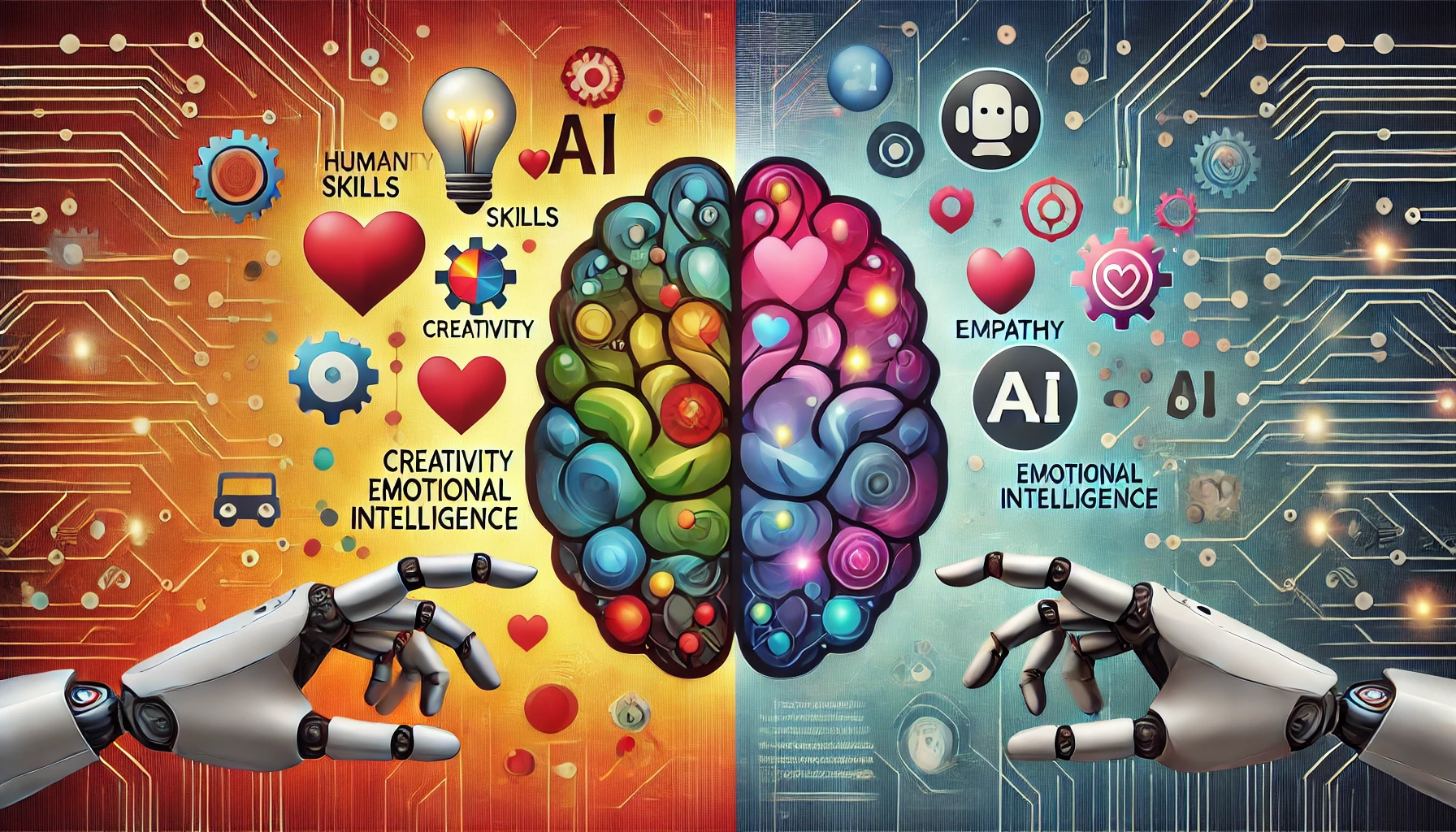As artificial intelligence (AI) continues to reshape industries, there’s growing concern that machines will take over more jobs, leaving humans with less to contribute. However, while AI can process vast amounts of data and automate repetitive tasks, it cannot replicate the uniquely human skills that drive innovation, emotional intelligence, and meaningful collaboration. In this post, we’ll explore the key human skills that are becoming more valuable than ever in the age of AI, and why these abilities will remain crucial for success in the workplace of the future.
1. Emotional Intelligence: The Power of Empathy
One of the greatest strengths humans have over machines is emotional intelligence. Emotional intelligence refers to our ability to recognize, understand, and manage our own emotions and those of others. In leadership, teamwork, and customer-facing roles, empathy and emotional understanding are irreplaceable.
- Why it Matters: Emotional intelligence allows for effective conflict resolution, collaboration, and creating a positive workplace culture—things that AI cannot replicate.
- Real-Life Application: For example, customer service professionals who can listen to a customer’s frustrations and respond with empathy will always outperform AI systems that rely solely on scripted responses.
Key Skill: Building strong relationships through compassion and empathy.
2. Creativity: The Human Touch Behind Innovation
While AI excels at processing data and even mimicking artistic expressions, true creativity—the kind that fuels innovation—remains uniquely human. Creativity is more than the ability to generate new ideas; it’s about seeing the world from a different perspective and finding novel solutions to complex problems.
- Why it Matters: AI can analyze existing patterns, but only humans can break the mold and think outside the box to come up with entirely new concepts.
- Real-Life Application: Designers, marketers, and product developers who use their creativity to dream up new approaches will continue to lead in fields where imagination and originality are key.
Key Skill: Thinking outside the box and finding new ways to approach challenges.
3. Communication: Conveying Ideas and Building Connections
Even as AI becomes more sophisticated, it struggles with the nuances of human communication—particularly the emotional and contextual aspects that are so important in interpersonal relationships. Whether it’s leading a team, negotiating a deal, or inspiring others, communication skills will remain critical in any human endeavor.
- Why it Matters: Effective communication builds trust, fosters collaboration, and ensures that everyone is aligned with a shared vision.
- Real-Life Application: Leaders who can clearly articulate ideas and listen to others will continue to be vital to organizations, regardless of how much technology evolves.
Key Skill: Mastering both verbal and non-verbal communication to convey ideas with clarity and impact.
4. Curiosity: A Drive That Fuels Learning and Growth
AI can analyze existing data, but it lacks the curiosity that drives humans to explore, ask questions, and push boundaries. Curiosity is what leads to breakthroughs in science, business, and technology, and it’s a fundamental trait that AI can never replicate.
- Why it Matters: In a rapidly changing world, those who remain curious and open to learning new things will adapt more easily and stay ahead of the curve.
- Real-Life Application: A professional in any field who continuously seeks new knowledge and looks for ways to improve will always have an advantage over someone relying solely on AI-generated insights.
Key Skill: Being open to new experiences and continuously seeking opportunities to learn and grow.
5. Courage and Adaptability: Thriving in Uncertainty
As AI disrupts industries and reshapes the way we work, the ability to adapt and embrace change becomes essential. Courage is needed to take risks, make decisions in uncertain environments, and push through challenges—traits that AI lacks.
- Why it Matters: People who demonstrate resilience and adaptability are more likely to succeed in times of rapid change, where AI is most disruptive.
- Real-Life Application: Entrepreneurs, innovators, and leaders who step out of their comfort zones and embrace new challenges will continue to drive progress in ways that AI cannot.
Key Skill: Embracing change and uncertainty with a positive mindset and a willingness to take risks.
Conclusion
As AI continues to take over many intellectual tasks, the value of human skills like emotional intelligence, creativity, communication, curiosity, and courage will only increase. These uniquely human abilities are essential for building meaningful relationships, driving innovation, and navigating the complexities of the modern world. While AI will play an important role in supporting our work, it’s the human touch that will ultimately lead to success.
Call to Action: Ready to cultivate your uniquely human skills? Start by identifying areas where you can improve your emotional intelligence, creativity, or communication. Sign up for our newsletter to receive tips and resources on how to thrive in the age of AI.
